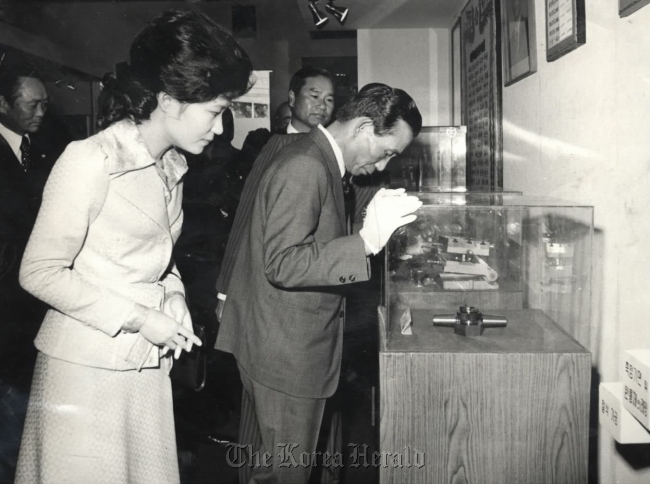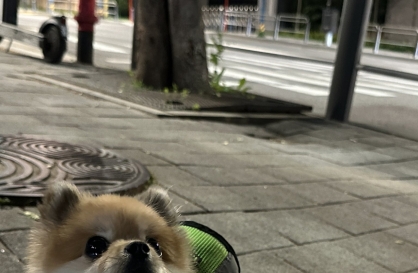Father’s legacy looms large over Park presidency
Observers see striking similarities between late president and daughter
By Korea HeraldPublished : Feb. 24, 2013 - 20:00
President Park Geun-hye will return to Cheong Wa Dae Monday, more than 30 years after she left the presidential house following the violent death of her father Park Chung-hee.
The controversial former president from 1963 to 1979 was both the biggest asset and hurdle on her path to the pinnacle of power in Korea.
Many of her supporters have fond memories of the nation’s rapid economic growth during the Park era. But the dictatorship of the former general who seized power through a coup in 1961 marked the darkest chapter in Korea’s modern history.
The controversial former president from 1963 to 1979 was both the biggest asset and hurdle on her path to the pinnacle of power in Korea.
Many of her supporters have fond memories of the nation’s rapid economic growth during the Park era. But the dictatorship of the former general who seized power through a coup in 1961 marked the darkest chapter in Korea’s modern history.

As a political leader, the daughter has shown a number of striking similarities to her father, from the style of personnel selection and policy emphasis, to even the habit of carrying a notebook.
One of Park Geun-hye’s better known traits she shares with her father is an emphasis on national security.
As a former Army general, Park Chung-hee placed much importance on national security and the need to secure self-sufficiency in defense.
The eventually scrapped nuclear weapons program and the reserve force were both created under the elder Park to boost South Korea’s defenses against a possible incursion by the North.
Park Chung-hee’s dedication to defense has left a deep impression on his daughter, to the point that her first response to the news of Park Chung-hee’s assassination in 1979 is reported to have been a question about the border with North Korea.
While Park Geun-hye is unlikely to dedicate as much resources to defense as her father did, her emphasis on defense and security was made evident in her decision to establish the national security office within the presidential secretariat. In addition, the reorganized Cheong Wa Dae’s staff includes two former four-star generals ― former defense minister Kim Jang-soo as the national security office chief and Presidential Security Service chief Park Heung-ryul, who served as the Army chief of staff before his retirement.
The emphasis on national security extends to personal security with both Parks. The elder Park was the president who established a separate security office, while Park Geun-hye upgraded the post of chief of presidential security to a ministerial-level position.
Under recent administrations, the post was filled by a vice-minister level official.
They also share a passion for science and technology.
Under the elder Park, a government body for science and technology as a separate entity was established in 1967.
Under his daughter’s administration, the Science Ministry will be separated from the Ministry of Education, Science and Technology as the Ministry of Future Creation and Science.
In addition, Park Geun-hye is looking to science and technology to fuel economic growth as her father did in the 1960s and the 70s. During his 18-year rule, Park Chung-hee pumped state funds into steel, electronics and other industries requiring high levels of technology despite concerns that the country was not ready for such changes.
“The creative-economy model was chosen for the new government as it was judged that (achieving growth) using the same method as before would be difficult,” she told local business leaders at a meeting hosted by the Korea International Trade Association on Feb. 20.
“The plan is to find new growth engines, to find new markets and generate jobs through the creative economy that is based on science, technology and creativity.”
While Park Geun-hye has been ridiculed for carrying a notebook around wherever she goes, the habit of taking notes is a trait seen in both Parks.
According to former Labor Minister Nam Jae-hee, who was catapulted into the National Assembly by Park Chung-hee in 1979, the former president was also famous for taking notes. The notes, which ranged from the contents of Cabinet meetings to his impressions of people he met, were then used to make various decisions.
The note-taking habit of the two Parks is also linked to their style of making personnel selections.
The elder Park is said to have made personnel selections based on notes taken years earlier, leading to choices unexpected by both his aides and the individuals selected for office.
The new president has also made seemingly random choices using her notes. One of the most notable examples of a note-based choice is Minister of Maritime Affairs and Fisheries nominee Yoon Jin-sook.
The president is reported to have first seen Yoon at a seminar in 2008, and tapped her to lead the ministry that will be revived after five years.
“I don’t even remember clearly whether (Park) was at the 2008 seminar, but Park contacted me referring to that event,” Yoon was quoted as saying in the local media.
Another aspect of personnel management Park Geun-hye shares with her father is decisiveness.
Both are known for taking a firm stance in removing aides and associates, even those considered closest to them, when such actions are deemed necessary.
However, the two are also known for bringing removed aides back without hesitation when necessary.
By Choi He-suk (cheesuk@heraldcorp.com)
-
Articles by Korea Herald







![[AtoZ Korean Mind] Does your job define who you are? Should it?](http://res.heraldm.com/phpwas/restmb_idxmake.php?idx=644&simg=/content/image/2024/05/06/20240506050099_0.jpg&u=)











